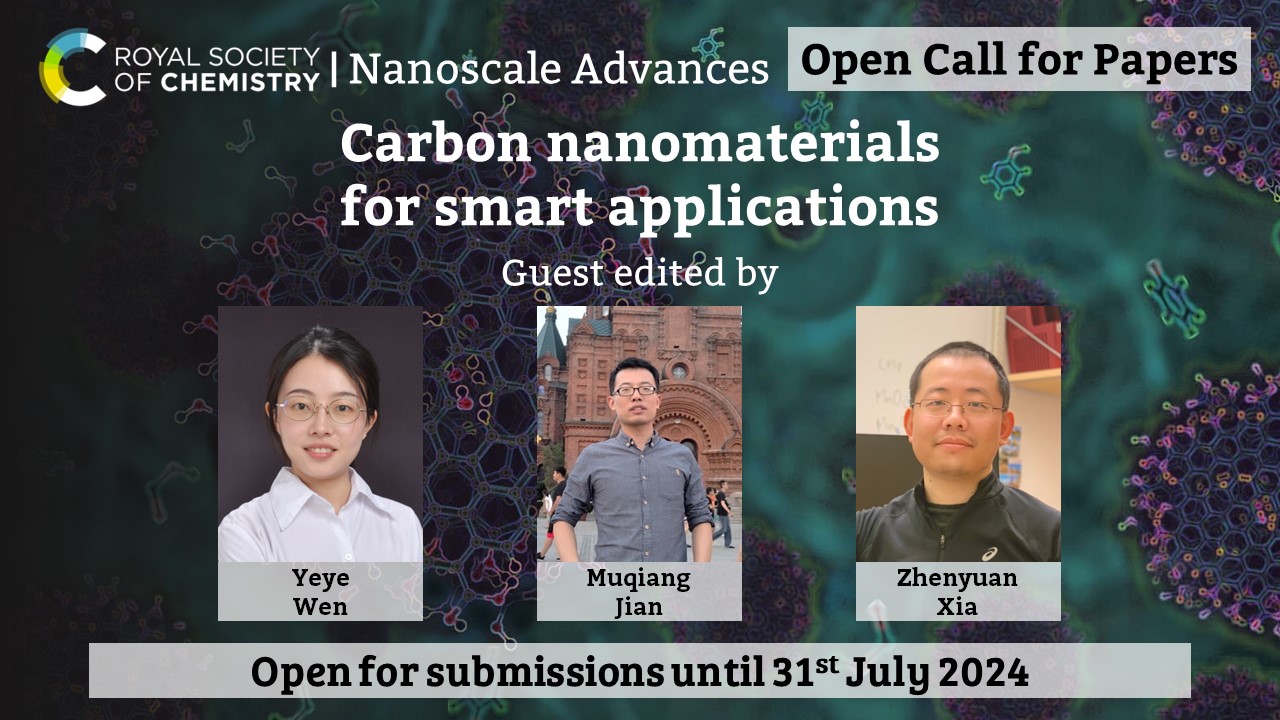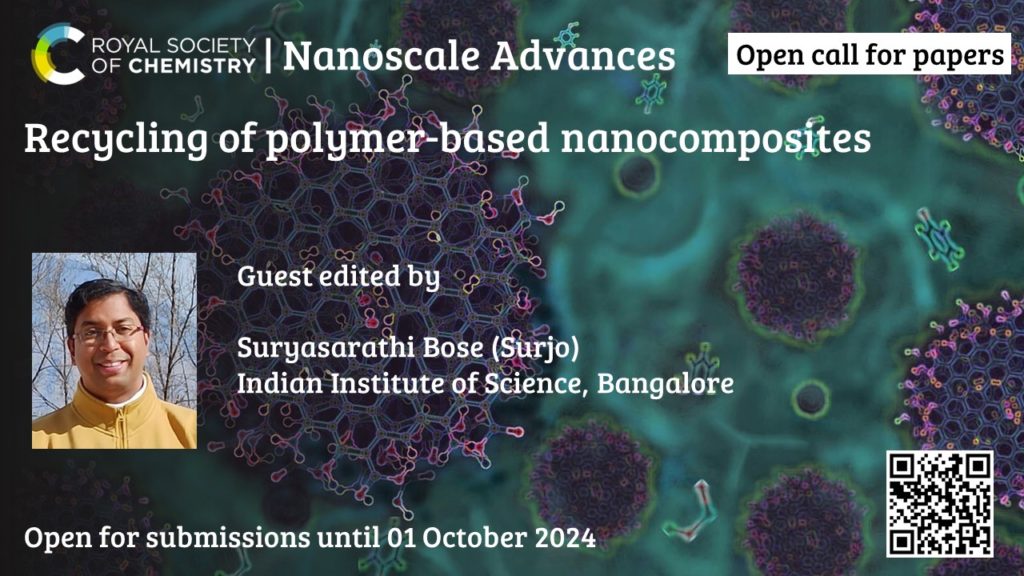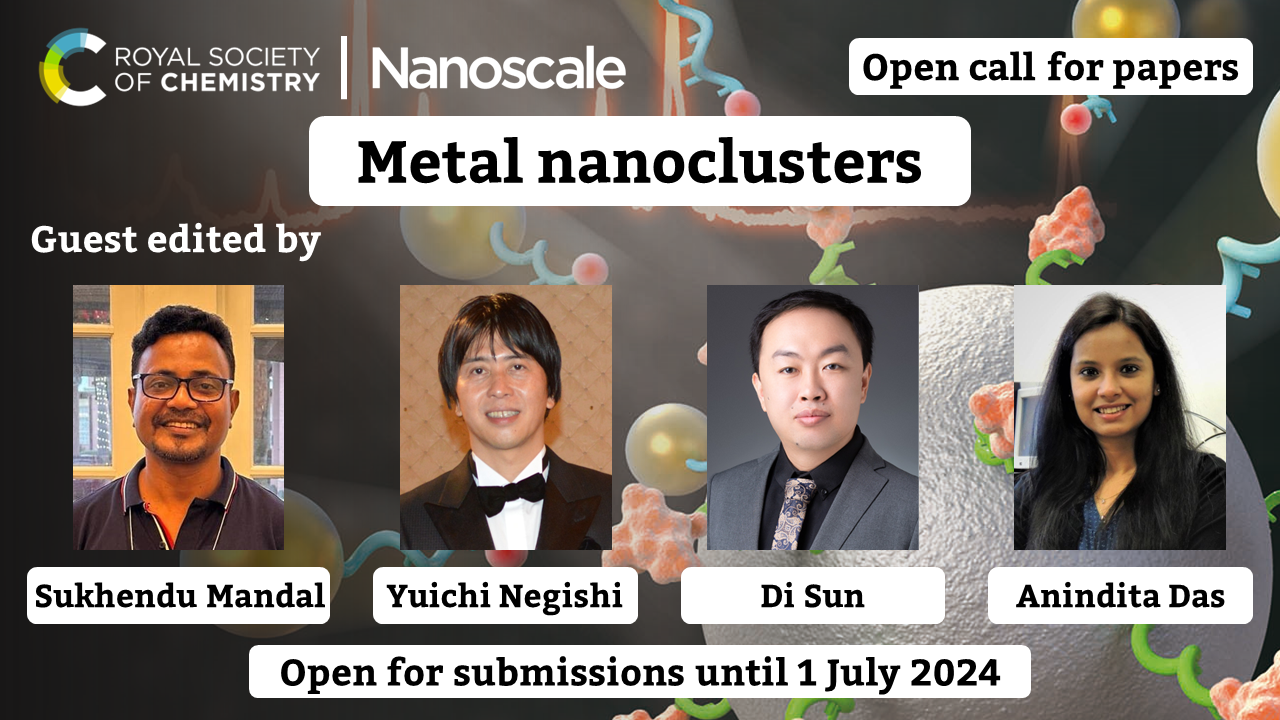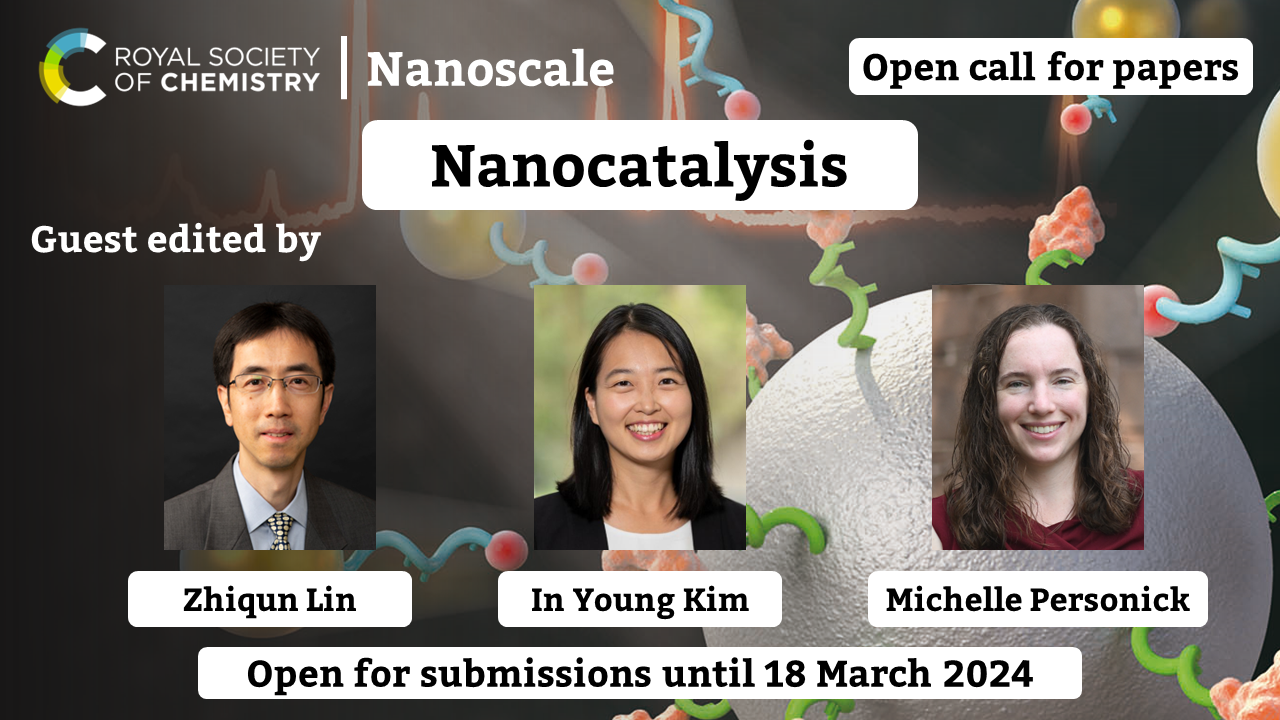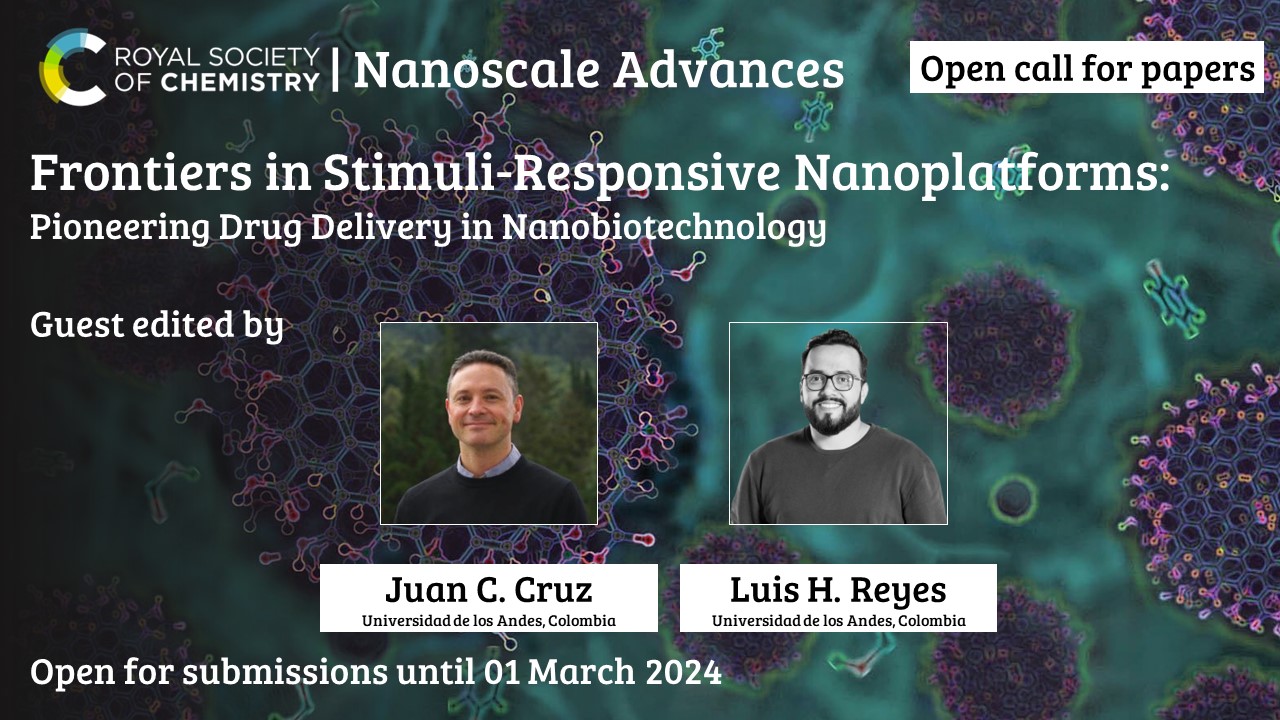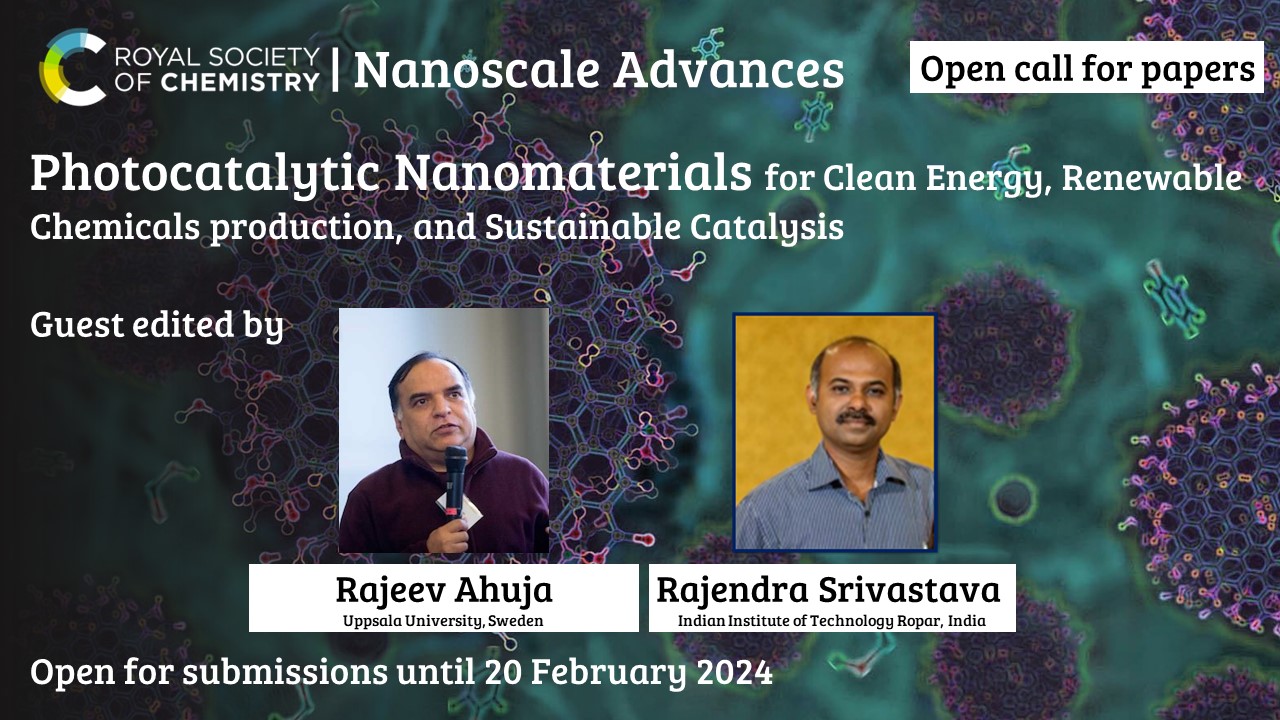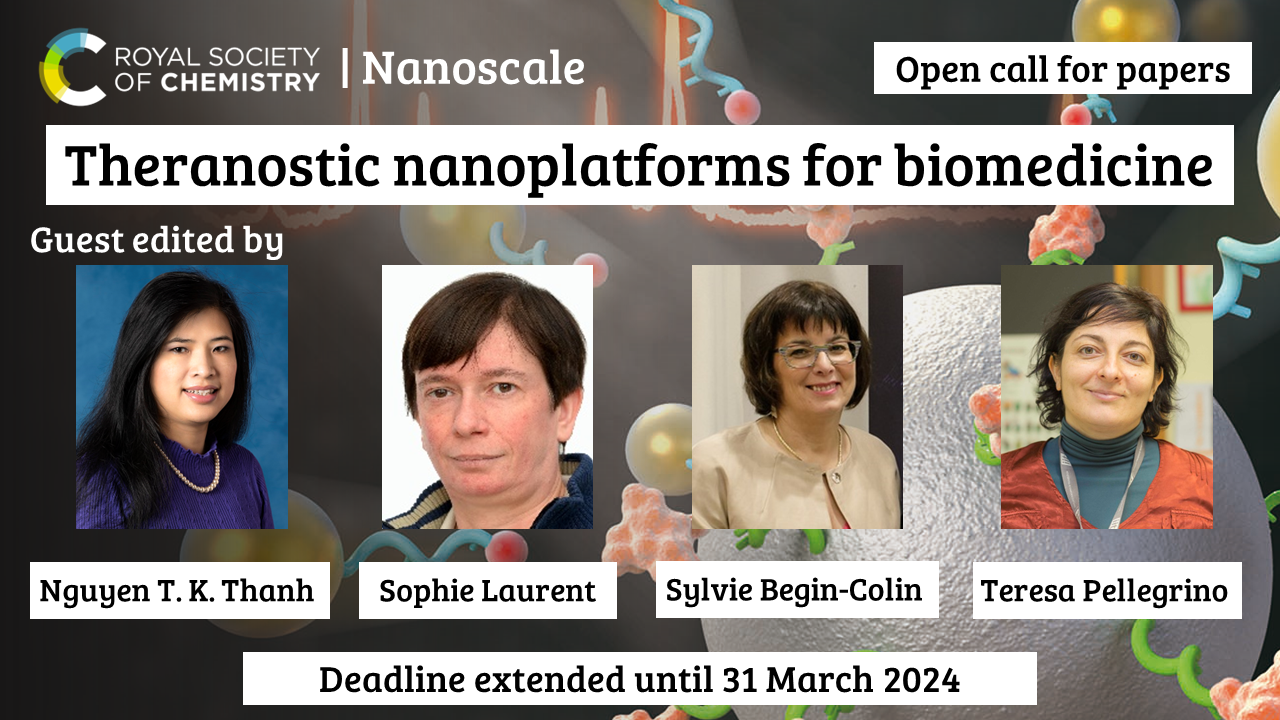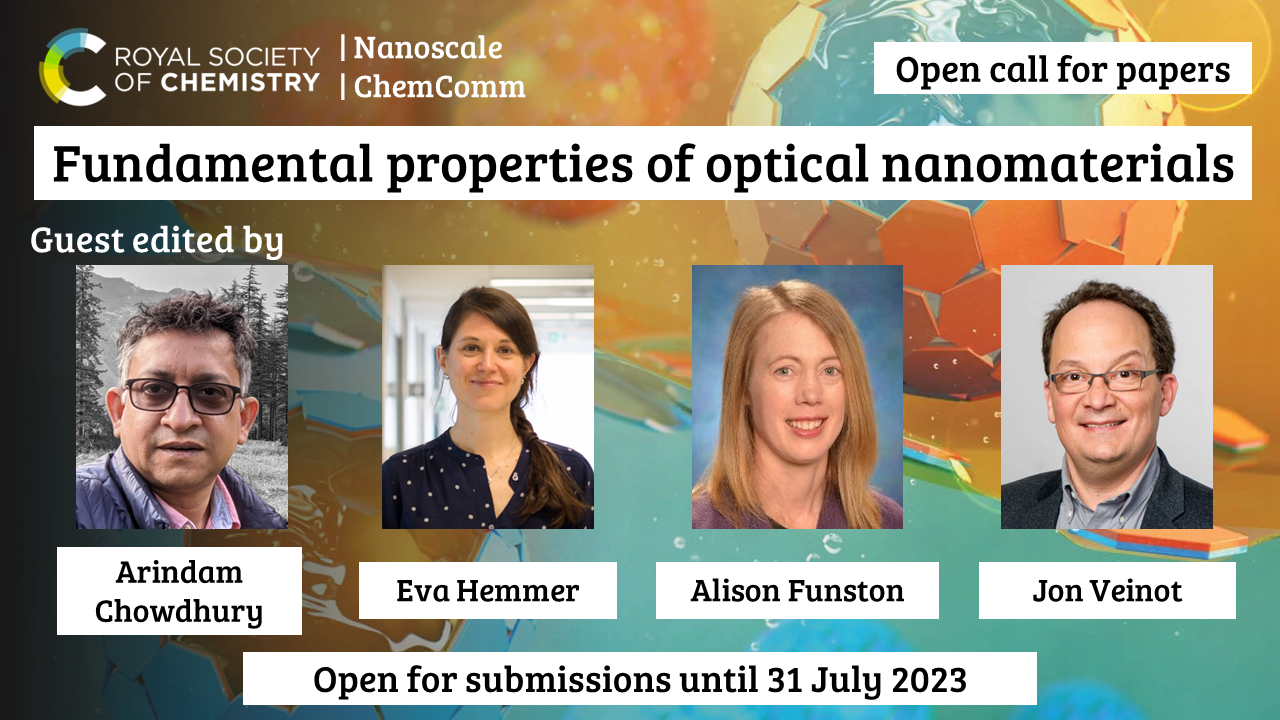We are delighted to announce an open call for papers to our new themed collection on Carbon nanomaterials for smart applications.
Carbon nanomaterials with interesting properties have become more easily accessible with rapid research progress in the field, leading to their increasingly widespread use for materials development and applications. This themed collection broadly focuses on carbon nanomaterials for smart applications including (but not limited to):
- Design and synthesis of carbon nanomaterials
- Assembly of carbon-based smart nanostructured materials
- Fabrication of carbon nanomaterials and polymer composites for smart textiles
- Graphene and CNT-based smart composites for energy harvesting and storage devices
- Smart carbon-based materials for biomedical sensors and drug release systems
- Carbon-based thermochromic and electrochromic hybrid materials
- Carbon-based smart materials and composites for water purification
- Carbon nanomaterials for smart thermal management
- Carbon nanomaterials for actuators (e.g., artificial muscles)
Submit before 31st July 2024
If you are interested in contributing to this collection, please get in touch with the Editorial Office
Nanoscale Advances publishes quality research across the breadth of nanoscience and nanotechnology. It has an impact factor of 4.7 (Journal Citation Reports 2022, Clarivate Analytics).
Please note that article processing charges apply to all accepted articles submitted to Nanoscale Advances unless you have an institutional agreement with the RSC that covers publication in our gold open access journals or if you are eligible for a waiver. More information about charges, discounts, and waivers are available here. Corresponding authors who are not already members of the Royal Society of Chemistry are entitled to one year’s Affiliate membership as part of their APC. Find out more about our member benefits.
This themed collection is Guest Edited by:
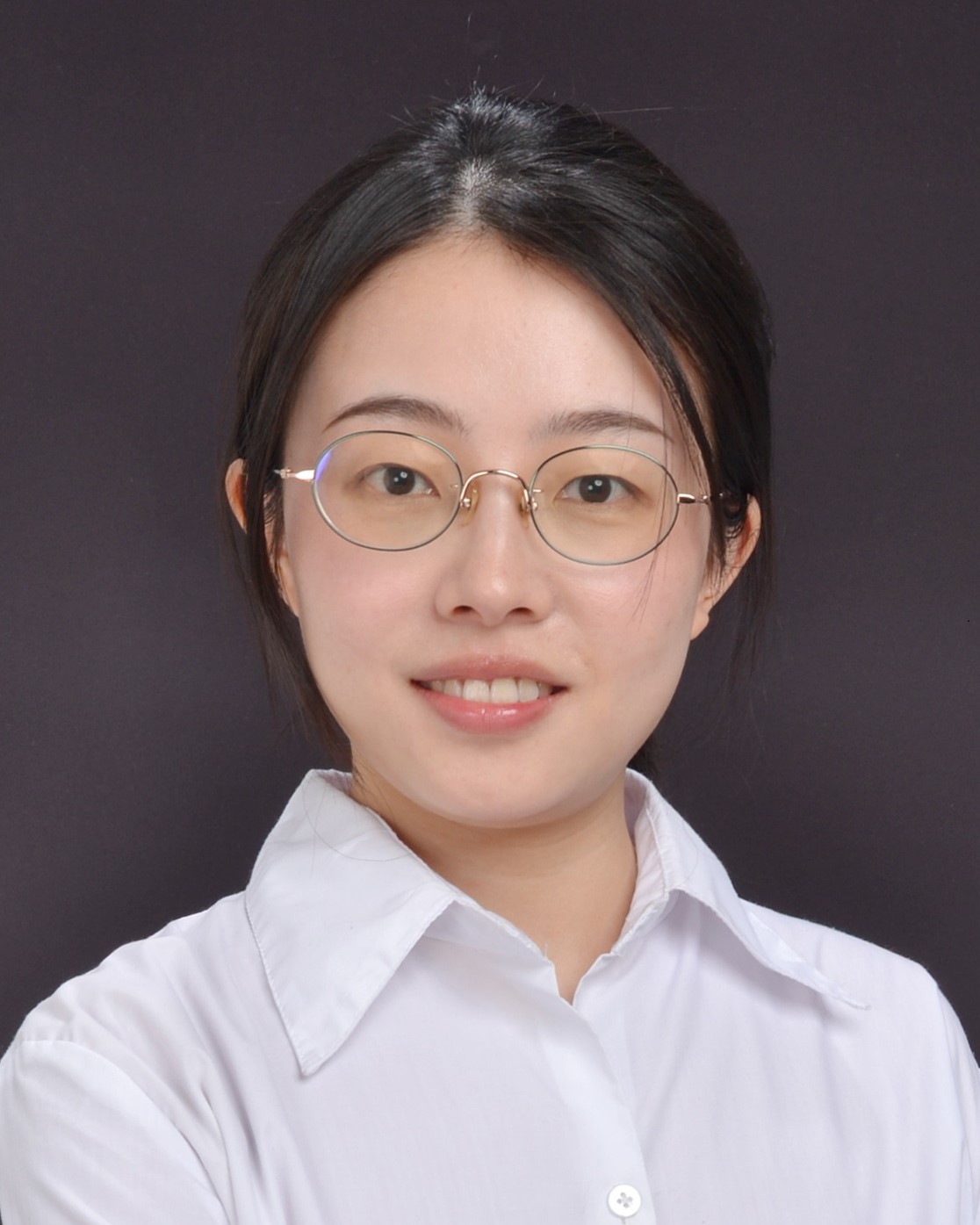
Yeye Wen Yeye Wen is currently an associate professor at Advanced Research Institute of Multidisciplinary Science, Beijing Institute of Technology. She obtained her PhD from Tsinghua University in 2020 and then worked in Prof Jin Zhang’s group at Peking university and Beijing Graphene institute as a postdoctoral researcher from 2020-2022. Her research interests focus on controllable synthesis and assembly of carbon nanomaterials and functional porous materials for bioseparation and biosensing applications. |

Zhenyuan Xia Zhenyuan Xia is currently a Senior Researcher (Docent) at Chalmers University of Technology and ISOF-Consiglio Nazionale delle Ricerche (CNR). He obtained his PhD from East China University of Science and Technology (ECUST) in 2010 and then worked in Dr Vincenzo Palermo’s group at ISOF-CNR (Italy) as a Marie-Curie postdoctoral researcher from 2011-2013. His research interests focus on electrochemical functionalization of graphene-related 2D materials for energy conversion and remediation of organic contaminants. |
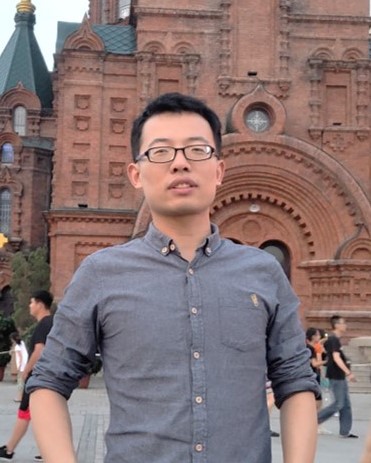
Muqiang Jian Muqiang Jian, Associate Researcher in Beijing Graphene Institute (BGI). After graduating from Tsinghua University in 2018, he worked as a postdoctoral researcher at Peking University from 2018 to 2020. Then he joined BGI, with a research focus on the production and applications of nanocarbon material fibers, and has published more than 50 papers. |


